News
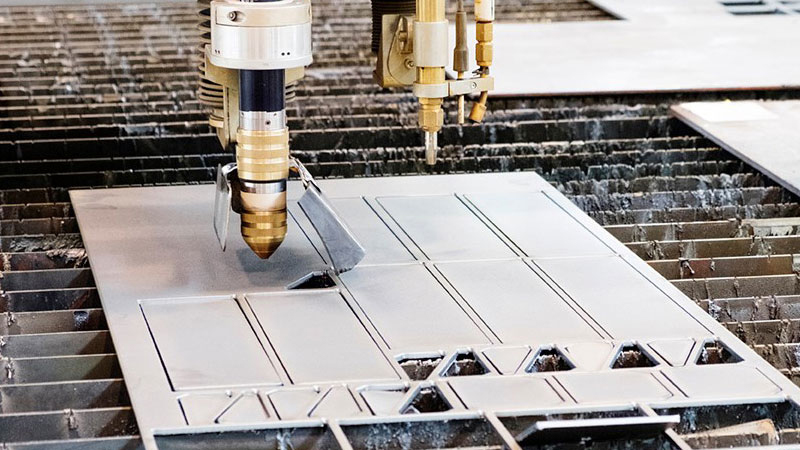
Michaelis Fabrication
The system components are manufactured and pre-assembled in the company's own production facilities using modern machines. This ensures high production quality.
Service can be provided on a short notice.
Michaelis has more than 3000 m² production area which will be expanded by another 3000 m³ next year.

Michaelis Technology Center
The challenge of the future of decentralised and sustainable waste usage requires innovative solutions.
Michaelis Power Modules are used to produce heat, cold, clean water or electricity.
For this purpose, Michaelis is building pilot plants on his company premises, in which the systems are set up and tested.
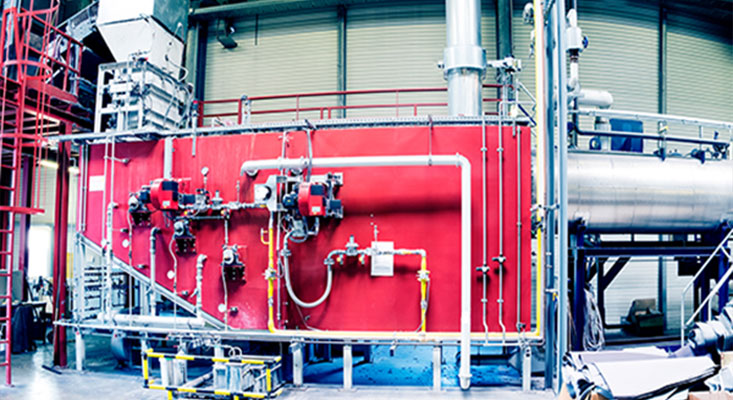
Thermal treatment: Sewage sludge
A sewage sludge incineration plant for industrial and municipal sewage sludge has successfully passed the performance tests.
The Michaelis Moved Bed System is able to treat sewage sludge in different consistencies and degrees of moisture. This makes it an economical alternative to the conventional fluidized bed process.
With the Michaelis Moved Bed System other fuels can be mixed with the sewage sludge. This flexibility results in further economic solutions.
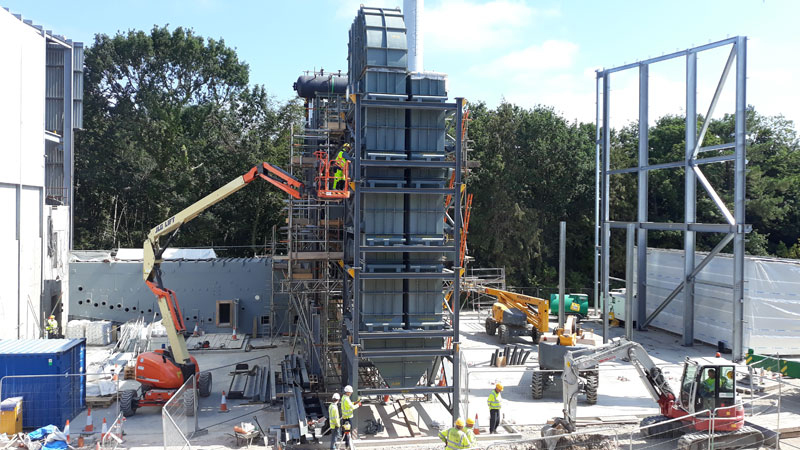
Thermal treatment: Refuse-derived fuel combustion
Decentralized solution for a Channel Island
Michaelis has received an order from a major European waste disposal company for a refuse-derived fuel plant in England.
Power generation: 4.3 MWh/h.
he system is currently being installed.
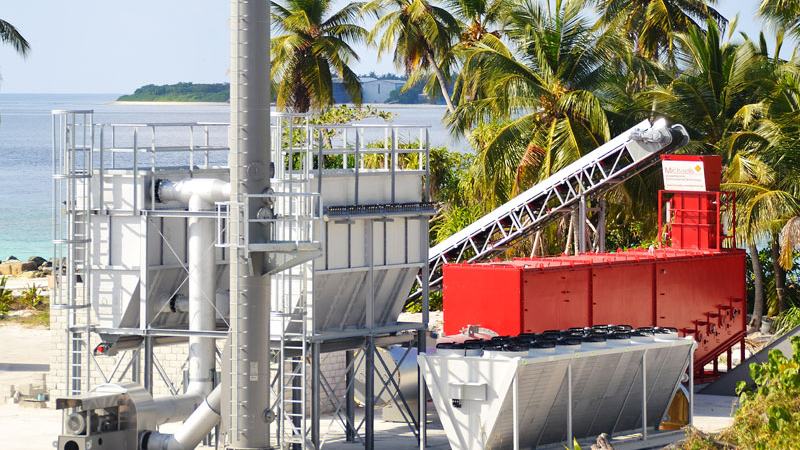
Thermal treatment: Domestic waste
Michaelis helps to protect the sensitive ecological system of the Maldives. On the uninhabited island of Vandhoo in the Raa Atoll, Michaelis has installed a modern domestic waste treatment plant.
Household waste from surrounding islands and resorts is collected by special ships and brought to Vandhoo. There the household waste is separated and processed. The combustible part is converted into heat in the Michaelis furnace and the flue gas is cleaned according to European standards.
The plant is operated by a local company with the support of Michaelis.
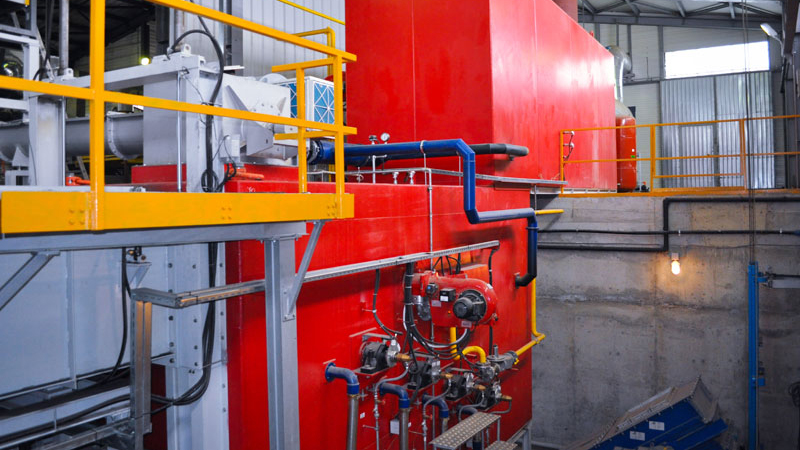
Thermal treatment: Medical and hazardous waste
In addition to the ecological aspect of the correct disposal of medical waste, hygiene and safety are paramount.
Potential dangers such as contamination and risk of injury from the waste are avoided by the automated and externally sealed system.
In addition to the volume reduction of waste, a high and sterile ash quality is achieved.
A thermal treatment plant for hospital waste is currently being planned for the United Arab Emirates. The capacity is 1.5 tons of waste per hour. The system will be delivered and installed in 2019.
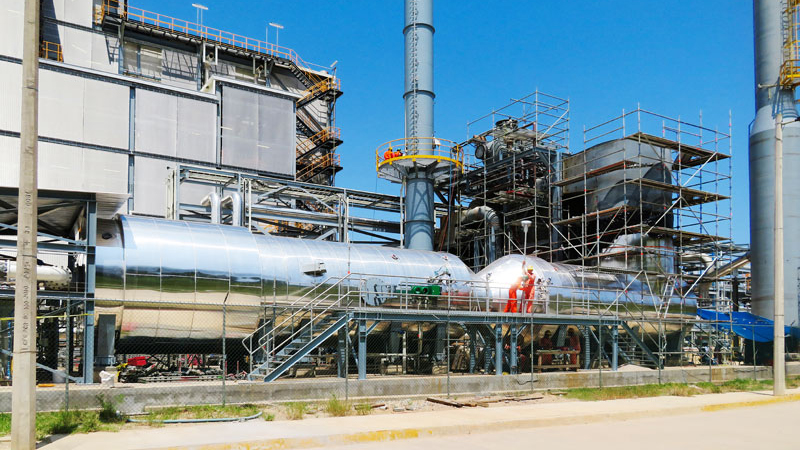
Off-gas treatment
Thermal solutionOff-gas from a production plant is purified in a two-stage post-combustion and utilized for steam and electricity production.
According to this principle, several Michaelis systems have been successfully commissioned worldwide.
A thermal afterburning system has currently been installed in Russia and is being put into operation.
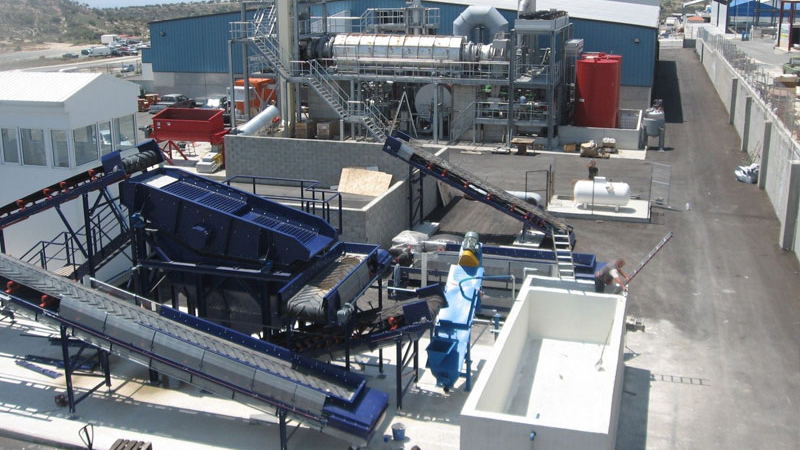
Used tires, plastics
Pyrolysis / Gasification
Used tires are converted to pyrolysis oil (diesel oil) and pyrolysis coke in the pyrolysis plant.
The disposal of high-caloric plastics is possible.
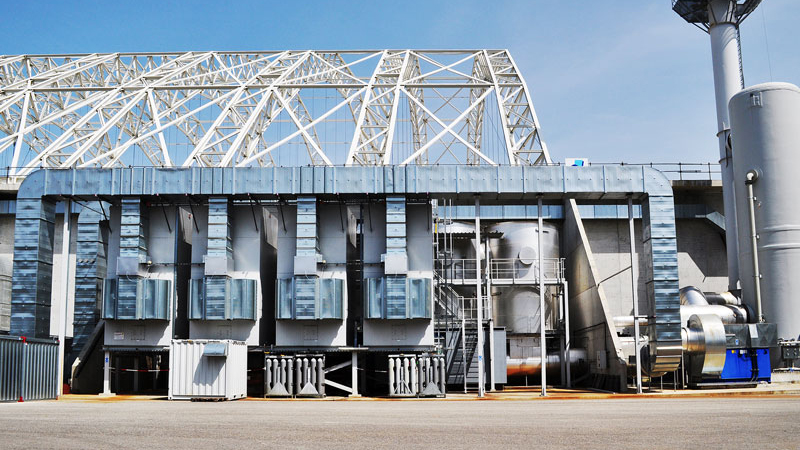
Landfill remediation & exhaust air treatment
A Swiss hazardous waste landfill was excavated and remediated over several years.
A Michaelis gas cleaning system has ensured the required zero emission of air pollutants. Plant availability was 100%.
After completion of the remediation work, the plant was dismantled and the area was reforested.
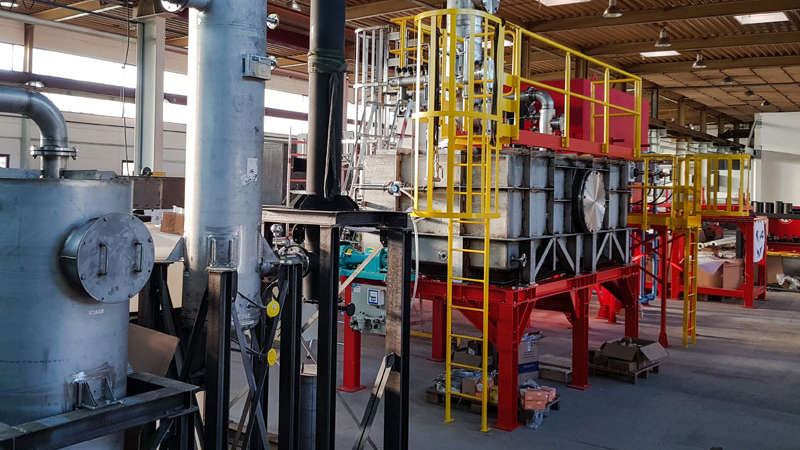
Recycling of catalysts
Resource recovery
Thermal treatment plants for the recycling of used catalysts.
The main field of application is the gas and oil industry. A thermal catalyst recycling plant is currently being commissioned in Australia.
The high exhaust air quality is ensured by a multi-stage clean air system. This removes not only acidic components and ultra-fine particles but also heavy metals from the flue gas.
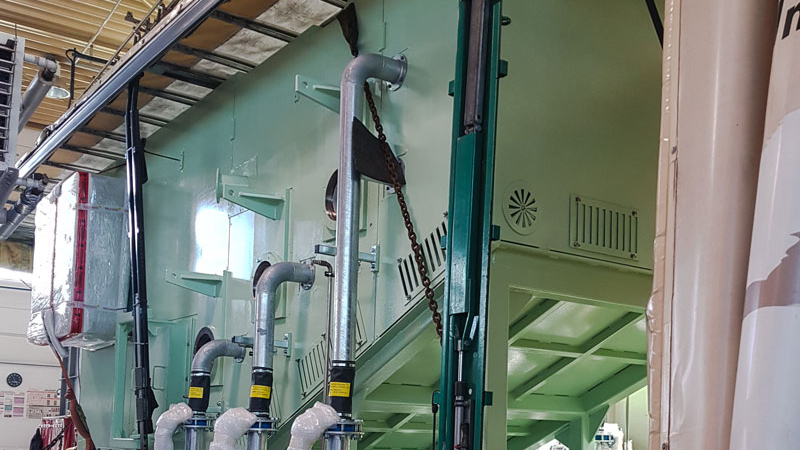
Marine incinerator
Very high availability with low space requirements
Thermal treatment plants for passenger ships must function very reliable.
The delivery of a Marine Incinerator with a combustion capacity of 500 kg/h was realized with a large German shipping company and is currently in the commissioning phase.
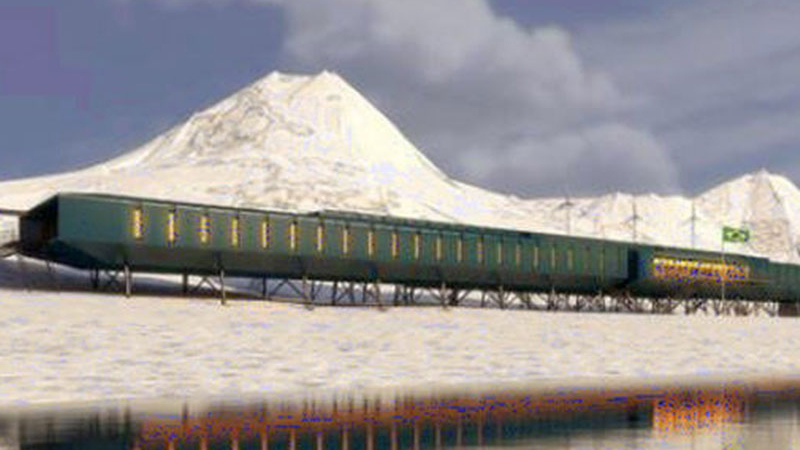
Waste combustion plant...
for an Antarctic station according to EU regulations.
Space requirements and operational safety were the main tasks.
The plant disposes the waste by the entire research team in an environmentally friendly manner.
